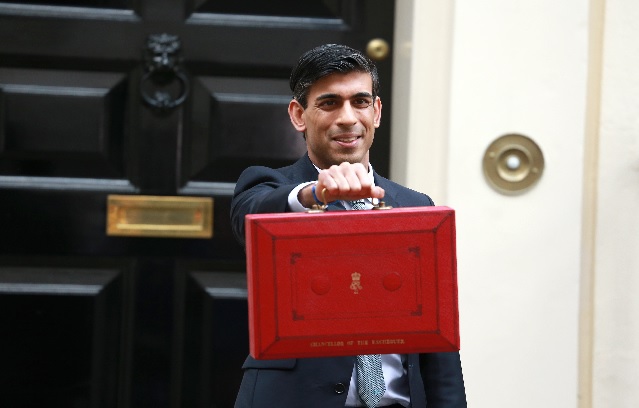

As the impact of the Covid-19 pandemic continues to be felt, we are urging the Government to adopt a range of measures in the upcoming Budget on March 3, which will help prevent disease, support people with heart and circulatory diseases and protect research investment.

We are also calling on the Government to provide relief for the hard-hit charity sector. Investment in these areas will be crucial to the UK economy as the country emerges from the current crisis.
Protecting cardiac services and preventing disease
Cardiac services in the NHS have been profoundly affected by the pandemic, with tens of thousands of potentially life-saving operations being cancelled or delayed. This vast treatment backlog risks setting back much needed progress in improving NHS cardiac services. That is why we are calling on the Government to provide an additional £10bn investment this year to deliver the aims of the NHS Long Term Plan in England.Investment in the health service must also be coupled with serious investment in public health measures which will ensure we are a more resilient, healthy nation. An important step in achieving this is by restoring funding for the Public Health Grant to adequate levels, following years of real-terms cuts in spending. We are also urging the Government to raise more revenue for public health programmes by lowering the threshold at which the Soft Drinks Industry Levy is applied, and also adopting a ‘polluter pays’ levy which ensures the highly profitable tobacco industry pays for tobacco control measures.
Support for a hard-hit charity sector
The BHF’s income has been devastated by the pandemic as our shops have been closed during lockdown, and scores of fundraising events have been cancelled in the past year. This is why we are urging the Government to adopt two measures in the Budget which would provide a vital boost to donations. The first is to temporarily raise the effective tax rate at which Gift Aid is paid from 20 per cent to 25 per cent for a two year period. Meanwhile, we are asking for an extension of the 100 per cent business rates relief to the end of March 2022, which would provide invaluable support for our charity shops.Protecting research investment
Our ability to fund life saving research has been severely impacted by the pandemic – with our research budget being reduced by 50 per cent this financial year. We fund more than half of all non-commercial cardiovascular research in the UK, so the wider effect of this reduction on the research and development ecosystem will be considerable without Government support. This is why we are calling for a ringfenced budget for the Life Sciences-Charity Partnership Fund, a time-limited Government-charity co-investment scheme that will provide a level of match funding from Government for future charity research over the next three years.Invaluable contribution to the economy
Commenting ahead of the Budget, our Chief Executive, Dr Charmaine Griffiths said: “The pandemic’s effect on NHS cardiac services has been enormous, and we are we are concerned about the legacy it will have for years to come. Not only could we see an increased number of people with cardiac issues as a direct result of Covid-19, but also longer waits for treatment and care. Substantial investment in the health service is required if we are to we avoid such a situation.
“At the same time, pressure needs to be taken off the health service by ensuring fewer people become ill in the first place – this is why greater public health funding is essential if we are to turn the tide on heart and circulatory diseases. This needs to be supplemented by measures that safeguard the future of UK research and deliver the breakthroughs that patients desperately need.
“From the high street to the research laboratory, the BHF makes invaluable contributions to both our health and economy every day. If we, and charities like ours, are to continue to do this then it is vital the Government support us as we continue to grapple with the devastating effects of the pandemic.”


